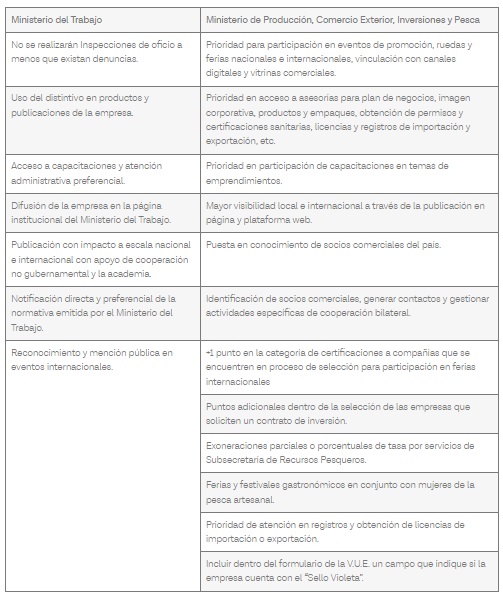
30-07-2024 | Noticias-en
The new Economic Crimes Law not only reconfigured the modifications of liability and incorporated a special system for determining punishment and alternative punishments in light of economic crime, but also added new criminal figures, whose limits and practical application have filled the business world with resentment.
One of them is that contained in article 134 bis of the Law on Public Limited Companies (LSA) which penalizes the illegality of abusive agreements that may occur in the boards of directors.
It is important to note that this crime, in its typical structure, punishes those who, taking advantage of their majority position on the board of directors of a corporation, adopt an abusive agreement to benefit or financially benefit another, to the detriment of the other partners and without the agreement bringing benefit to the company.
Next, we proceed to limit its scope of application to provide the following considerations:
First, the criminal type incorporated into article 134 bis was drawn up based on the text contained in article 291 of the Spanish Penal Code. Thus, the consideration of the latter, when resolving problems of interpretation and application of our criminal type, is essential for our dogmatics and jurisprudence.
In this sense, and to delimit the typical scope of the Chilean crime, it is necessary to keep in mind that, in light of Spanish dogma, the criminal type of abusive agreement has quite specific characteristics that we must consider.
As a reference, the offence only penalises, without prejudice to the other typical elements of the offence, those agreements that do not benefit society or do not respond to a rational need of the latter. In other words, it does not penalise the adoption of agreements that, even if they harm minority shareholders, benefit or respond to a rational need of society.
It is therefore essential for the configuration of the crime to have in view the “social balance” associated with the adopted agreement. For these purposes, the mere occurrence of damage to the minority is not sufficient.
Thus, agreements that are beneficial to society, despite harming minority partners, and neutral agreements, which respond to a rational need of society, even when harming minority partners, would be atypical.
Secondly, it must be considered that the benefit, harm or specific effect that an agreement has on the social interest must be determined in light of criteria of economic rationality that exceed the sole consideration of the immediate effects associated with a particular agreement.
Let us consider an agreement that initially generates an economic advantage for society, but which, in the long term, is detrimental to its interests. In this case, this initial advantage is completely irrelevant in terms of the definition of the criminal type of abusive agreement. The conduct may also be criminal. And the same applies in reverse.
Finally, we must mention that the typical conduct sanctioned must be limited to the adoption of those agreements that are suitable to cause harm to the other partners. In other words, if a certain agreement does not have the possibility of causing harm to the other partners, then it cannot be sanctioned as a result of the crime of abusive agreement.
However, these clarifications are merely indicative. There are other clarifications that must be considered in order to delimit the typical scope of application of Article 134 bis.
The Chilean criminal type, a mirror of the Spanish one, cannot be applied in a way that goes beyond its superficial meaning or contradicts its origin. There is already a guide, there are already substantive delimitations that can guide the application of this new crime in our law. And this cannot be ignored by our doctrine and jurisprudence.
To discuss these issues, you can contact our Criminal Litigation team:
Gabriel Zaliasnik | Partner | gzaliasnik@az.cl
Loreto Hoyos | Director of the Criminal Group | lhoyos@az.cl
David Segall | Senior Associate | dsegall@az.cl

29-07-2024 | Noticias-en
On July 24, the Central Bank of Paraguay (BCP) approved, through resolution No. 12, the “Regulation of the QR Generation Standard for Electronic Payments in Paraguay”. This regulation establishes the requirements for the generation and use of QR codes in electronic payments within the country.
Key aspects of the new regulation
QR Code: A two-dimensional quick response barcode containing information necessary for payment services, which can be scanned, processed and transmitted securely by a device.
Dynamic QR Code : Code presented by the merchant that includes your data to complete the payment and the amount to be paid.
Static QR Code : Code presented by the merchant that includes your details to complete the payment, but not the amount to be paid.
EMV® QRCPS : QR codes developed according to Europay, Mastercard and Visa Common QR standards and guidelines.
Standardization requirements
Dynamic and static QR codes must be based on EMV® QRCPS standards.
QR code generation must follow the guidelines of the PY-QR Code Implementation Guide.
QR codes must include the PY-QR logo.
Requirements for payment service providers (PSPs)
PSPs that use electronic payments with QR code must register with the BCP, in accordance with the instructions and requirements established by the Sub-General Management of Financial Operations (SGGOF). The deadline to comply with these requirements and complete the corresponding registration is June 30, 2025.
The SGGOF will issue the PY-QR code implementation guide, which will cover all transactions related to the generation of QR codes for electronic payments in the country.
For more information
For additional questions or more details on how this Regulation may affect your business, you can contact consultas@ferrere.com.

19-07-2024 | Noticias-en
The Plenary Session of the Congress of the Republic unanimously approved the opinion of Bills No. 2942/2022, 3131/2022 and 3541/2022 (the “Opinion”), which modifies literal e. of article 58.1 of Law No. 29571, Consumer Protection and Defense Code (the “Code”), regarding the prohibition of spam calls.
With this amendment to the Code, companies would be prohibited from using call centers , telephone calling systems, sending text messages to cell phones or mass electronic messages to offer products or services to consumers, unless the latter, on their own initiative, have given their free, prior, informed, express and unequivocal consent to be contacted to receive commercial or advertising communications. This includes the prohibition of making calls to establish initial contact with the consumer and request their consent, which is currently permitted by the Code.
The Opinion also specifies that consent may be revoked with immediate effect and without giving any reason, at any time and in accordance with personal data protection regulations. Furthermore, it provides that the violation of this prohibition or its revocation is a very serious infringement.
Finally, the Opinion incorporates article 58.3 into the Code, the text of which states that in order to guarantee consumer protection against aggressive or deceptive commercial methods, the State establishes rules for the proper use of sending messages and calls on telecommunications networks. For the application of this provision, the Sole Final Complementary Provision of the Opinion states that within a period of 60 calendar days – counted from its entry into force – the Executive Branch will establish additional regulations that grant special telephone numbers to providers, security methods and validation techniques so that users can identify the calls they receive.
You can access the Opinion .
For more information on this topic or any questions:
innovacion@cpb-abogados.com.pe

15-07-2024 | Noticias-en
By Decree No. 852 of July 5, 2024 (the “Decree 852”), the Ministry of Environment and Sustainable Development (the “MADS”) modified the environmental licensing regime for energy generation projects from non-conventional sources (“FNCER”).
What changes does Decree 852 introduce?
Decree 852 introduced the following modifications:
- Change in the powers of the ANLA and the CAR.
- Introduction of a new definition.
- Transitional regime regarding the change of powers.
Download the newsletter here .

12-07-2024 | Noticias-en
On May 25, the National Secretariat for the Fight against Money Laundering and the Financing of Terrorism (SENACLAFT) published the Guide of signs and indicators of money laundering risk for Non-Financial Obligated Subjects in the use of virtual assets. The objective of the Guide is to facilitate the evaluation of risks when using virtual assets.
Article 19 of Law 19,574 establishes a risk-based approach, establishing that obligated parties must apply enhanced due diligence procedures in those cases in which new technologies that promote anonymity are used. In this sense, in operations where virtual assets are used, the obligated party must necessarily apply enhanced due diligence measures.
SENACLAFT highlights that at the time of publication of the Guide, the activity of virtual service providers, as well as the use of virtual assets, is not legally regulated in the country, a situation that may change in the short term.

12-07-2024 | Noticias-en
On June 11, 2024, Interministerial Agreement No. MCEIP-MDT-2024-001-AI was signed between the Ministry of Labor and the Ministry of Production, Foreign Trade, Investments and Fisheries. The new regulations stipulate that companies wishing to obtain the “Violet Seal” must take into account principles, norms, actions and indicators that demonstrate the employer’s commitment to eliminate barriers, wage gaps, situations of violence, harassment and discrimination, promotion of promotions and conciliation with care tasks, elimination of discriminatory permits and breastfeeding, as well as the promotion of equality in collective bargaining.
Both ministries announced that they will grant the following benefits to companies that obtain the “Violet Seal”:

Procedure for obtaining the “Violet Seal”:
To obtain this badge, companies must submit the following documents through the Document Management System of the Ministry of Labor:
Application form for obtaining the “Violet Seal” Distinctive.
Payroll of Workers.
Notice of Entry to the IESS of the workers.
Payment roles for the last three months of the workers.
Proof of payment of the workers’ reserve funds; delivery of supplies, instruments; delivery of clothing.
Document of not being in arrears or maintaining glosses or credit titles in the certificate of compliance with obligations issued by the IESS.
Documents that demonstrate compliance with the Program for the Prevention of Psychosocial Risks registered in the Ministry of Labor.
Comply with the equality policies and the guidelines provided by the Ministry of Labor for compliance with these.
Not having been sanctioned for a complaint from a worker due to discrimination, workplace harassment, sexual harassment at work or violence against women in the last three (3) years.
Equality Plan Registry.
Job Manual in accordance with current regulations.
Human Talent/Human Resources List that includes promotions and professional development.
Registry of training carried out in the last year.
Implementation of current regulations to eliminate harassment, violence and discrimination.
Within 60 days of submitting the documentation, the certifying entity will issue a report analyzing the submitted documentation and will decide whether to approve or deny the granting of the “Violet Seal”. Once the Ministry of Labor knows the final approval report, it will grant the “Violet Seal” Resolution and its distinctive mark.
The duration of this badge will be 1 year from the date of delivery and may be renewed for equal periods indefinitely.
Finally, the Ministry of Labor reported that it will delegate the review of the requirements and certification of this distinction to entities that meet the requirements set forth in the regulations. Likewise, labor inspections may be carried out to verify the effective application of the actions implemented in the prevention, promotion and guarantee of women’s rights in the workplace.
If you require additional information, please contact the email laboral@bustamantefabara.com







